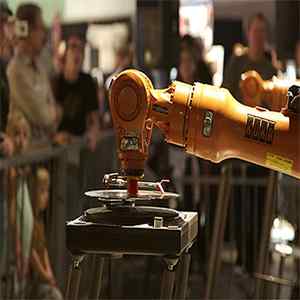The Potential of Quantum Computing in Optimizing Manufacturing Processes

Manufacturing is a primary industry that is instrumental to the development of economies of today and in the future. Thus, the importance of lean, reliable and intelligent manufacturing processes increases as industries develop over the years. Now, let us introduce quantum computing as a groundbreaking technology that will drastically alter the nature of production. In this article, we are going to consider what directions the use of quantum computing can be beneficial for the improvement of the processes of manufacturing.
Understanding Quantum Computing
Well, before going through the uses of quantum computing in manufacturing, it is imperative to distinguish what quantum computing is. The computers which are conventional to use are digital computers and they work on binary system and use bits which have qualities of either 0 or 1. While on the other hand, quantum computers utilize quantum bits or what are commonly known as qubits. If one were to think about it in plain English, qubits can hold 0, 1 or both values because it allow for what is called superposition. This makes it possible for quantum computers to solve problems faster than the classical computers when it comes to exponential calculations.
Entanglement is the second fundamental property of quantum computing. When the qubits of a machine communicate in such a way, it means that the state of a particular qubit is proportional to the state of the other no matter how distant the two are. These connections can be used to solve problems that would normally take computer solving a lot of time to solve.
Quantum Computing and Manufacturing
Industrial production also consists of many complex stages ranging from designing a product to creating prototypes, mass production, and inspection. Efficient management of these processes means considerable cost reduction and decrease of the amount of waste, as well as enhancing the quality of the final product. Quantum computing offers several ways to enhance manufacturing.
1. Optimization of Supply Chains
Another element which is vital for the manufacturing organizations is supply chain management since it deals with a range of materials, production, and distribution. While classical computers are disadvantaged when it comes to evaluating data, quantum computers can look at big data to improve supply chain models more efficiently. They are capable of solving for several variables at a time, where if there were many possible routes, schedules, and numbers of inventories, they will determine the best solution that can make delivery efficient, fast, and cost effective.
For instance a car maker could figure out using a quantum computer the best way of acquiring raw materials, production schedules, and distribution of finished cars. Through such aspects, the manufacturers are in a position of being able to minimize the lead times, transportation costs and also enhance the overall productivity.
2. Design and Prototyping
Creating new products entails various design proposals and trials of the components and materials. Quantum computing is capable of reducing the time needed for this process through the employment of simulations that are apt for quantum computers rather than classical ones.
Quantum algorithms can also serve to sort a large number of parameters that are involved in the problem and interact with each other. For example, in the automotive industry, quantum computer begin to design any part of the car in terms of weight, strength and costs to create better performing cars that are cheaper to produce.
3. Quality Control
Product quality is a vital element that needs to be protected while in the manufacturing process. Another application of quantum computing can be utilized in quality control measures as it can also involves data analysis on patterns of production line to identify defects or abnormalities quicker and more efficiently. Quantum computing algorithms used in the predictive maintenance have the capability to analyze the statistical probability of faults forming and thereby suggesting correct measures to be taken by the manufacturers.
For example, in semiconductor production, quantum computers can analyze sensor data and compare it with normal function to accurately pin point the areas of inconsistency to reduce yield loss and production of defective chips.
4. Energy Efficiency
The production processes claim considerably high levels of energy consumption. Optimizing cost through scheduling can also be achieved through a quantum computer where a quantum mechanical optimizer solves distinct schedules with varied energy plans in searching for the most favorable method. It is not only cost effective but also works in achieving the set environmental policies and standards on sustainability.
For instance, it was noted that with quantum algorithms, would improve the running of machineries, and equipment, in a way that they will consume minimum energy while producing maximum output. This could potentially mean massive savings in energy and consequently, the lowering of the carbon impact of manufacturing plants.
5. Material Discovery and Development
The advancement in material is a lengthy process due to the many stages that it has to go through. It can speed this up by modelling the process of molecules interacting at a very fast rate than normal computers. The new substance found can possess characteristics that are useful for various applications; for instance, better strength, less density, or better conductivity.
For instance, in aviation, a quantum computer would immensely be useful in finding new light weight coalition that is resistant to severe temperature and pressure for better creation of efficient and durable planes.
6. Logistics and Transportation
Organized transportation systems are crucial to support well-oiled production processes of a manufacturing company. In another case, the application of quantum computing in transportation can minimize transportation expenses and time through the best route and time/schedule determination. Since quantum computers can compute several conditions at a time like traffic situation, fuel, and delivery time quantum, it can determine the best route to transport the products.
A clear example of this is a logistics firm which can apply quantum computing in optimizing its fleet to return less gasoline, and have more efficient deliveries. This would also increase efficiency and the client’s satisfaction since they will be able to access the products they require easily.
7. Predictive Maintenance
Preliminary control focuses on the preservation and continuing function of machines and tools used in manufacturing. Another application of quantum computing is in the use of sensors for predictive maintenance whereby one is able to predict when a piece of equipment is likely to break down. This enables the manufacturer to carry out the maintenance when the machines are not yet fully faulty, thus, keeping unnecessary breakdown and repair expenses to minimal.
Real-World Applications and Case Studies
Examples of contemporary models and use, including examples of real business and organizations. Some of the companies and research centers in this field are already keen on the possibility of applying quantum computing in manufacturing. Here are a few examples:
IBM and Daimler
American giant IBM and the German automaker Daimler, the parent company of Mercedes-Benz, and each of them is working together on the utilization of quantum computing in materials science and automotive battery technology.
Thus, they could find new materials for the batteries of electric vehicles with higher energy densities using quantum simulations.
Volkswagen
Volkswagen has been researching on quantum computing in helping to solve issues to do with traffic flow and congestion. With real-time data from vehicles and traffic signals and information processing by quantum algorithms the route and the traffic signal systems can be optimized which will result in efficient mobility and less pollution.
Airbus
Airbus has considered using quantum computing in the tasks which are connected with the aircraft design and materials. Applications in quantum computing can be used to create materials that can be used to manufacture lightweight yet stronger airplanes, thus allowing for lighter and efficient planes.
Challenges and Future Prospects
While the potential of quantum computing in manufacturing is immense, there are several challenges that need to be addressed.
1. Hardware Development
Quantum computers are comparatively new and constructing reliable and large-scale quantum devices is much difficult. Quantum computers at the moment are called noisy intermediate scale quantum (NISQ) that can easily fail and have relatively a small number of qubits. Thus, there is a crucial role of improvement in the hardware which has to play an important role in the application of quantum com ruta in the manufacturing industry.
2. Algorithm Development
Another is the task of creating efficient quantum algorithms for particular problems in manufacturing. That is why, though significant advancements have been made to improve this aspect, additional efforts are required to develop efficient algorithms for solving numerous manufacturing issues.
3. Integration with Classical Systems
The use of quantum computers shall require integration with classical computers to solve manufacturing problems. When establishing a connection of a quantum system with a classical system, it is necessary to ensure smooth interaction.
4. Skilled Workforce
Quantum computing is a very specific interdisciplinary area and there are not many professionals who have a good understanding of both quantum computing and manufacturing. There is a requirement for training and educational initiatives that could produce a capable workforce to utilize Quantum technology in manufacturing processes.
Future Prospects
This is however not to say that quantum computing in manufacturing has no challenges or hitches because they are available despite the bright future ahead.
Therefore, as the quality of quantum hardware increases, and even more effective algorithms are designed, there will be manifold progress in manufacturing processes. Quantum computing can help industries transform the world by offering efficient, cost-effective, and environment-friendly manufacturing.
Thus, quantum computing can be potentially effectively applied in the optimization of manufacturing processes. Quantum technology can affect the manufacturing processes of a supply chain, design, and quality control, as well as predictiveness of maintenance. Of course there is still some way to go as the technology develops but the future of quantum computing for the manufacturing industry is currently being researched and will revolutionize it. In this context, many more opportunities open up and the further development of the manufacturing sector appears to be as bright and efficient as never before.









